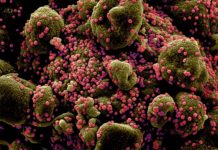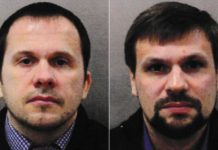KARACHI, Pakistan — Pakistan’s Taliban has named as its new leader, a religious scholar known for running brutal extortion rackets and opposing polio vaccination campaigns, promoting violence against health workers across the country.
The elevation of the leader, Mufti Noor Wali Mehsud, comes after a United States drone strike in Afghanistan killed the group’s previous leader, Mullah Fazlullah, this month. In a statement on Saturday, Pakistan’s Taliban confirmed Mr. Fazlullah’s death and said it was a “matter of pride” that its leadership had been “martyred by infidels.”
The group’s deputy leader, Khan Sayed, who also went by the name Khalid Sajna, was killed by an American drone strike in February.
In the statement, Muhammad Khurasani, a spokesman for the group, said its executive council had appointed Mr. Mehsud, who also goes by Abu Mansoor Asim, as its new chief. It named Mufti Hazarat, a relatively unknown militant, as his deputy.
Analysts believe that the militant group, known formally as Tehrik-i-Taliban Pakistan, cannot regain its past position of strength, as military operations against the group have weakened it and created internal divisions.
“The terror outfit has been weakened significantly because of security operations across the country, especially in the tribal region,” said Muhammad Amir Rana, the director of the Pak Institute for Peace Studies, a security think tank in Islamabad.
“For its newly appointed chief, overcoming the internal differences within the group and increasing its operational capabilities will be greater challenges,” he said, adding that Mr. Mehsud has never been seen as a central Taliban commander.
But the threat of violence by the group has not diminished.
In Karachi, Pakistan’s largest city, the news spooked many residents, as Mr. Mehsud’s name is synonymous with one of the urban center’s bloodiest chapters of terrorism. The group extended its influence to Karachi in 2012, at the height of its reach in the country, having spread from its base in the sprawling, isolated border region that Pakistan shares with Afghanistan.
By 2013, Mr. Mehsud had risen up the Taliban ranks to oversee Karachi, where he waged a bloody campaign of extortion and kidnapping against Pashtun traders and affluent residents, money that funded the militants’ activities across Pakistan. Pashtuns, who make up a large portion of Karachi’s population of more than 16 million, have traditionally fed the ranks of the Taliban.
Mr. Mehsud commanded his extortion racket in Karachi from his base in Miram Shah, a town in North Waziristan, on the border with Afghanistan, and visited the city infrequently. The militant leader forced Pashtuns from Karachi to resolve their business disputes through Taliban courts in Miram Shah, summoning civilians to make the long journey for hearings.
For those who did not heed the calls, Mr. Mehsud ensured that the Taliban meted out vengeance in Karachi, intimidating family members or threatening their businesses.
In Karachi, Muhammad Ibrahim, an owner of a small transportation company, was one of dozens summoned to Mr. Mehsud’s court in Miram Shah to resolve a dispute he had with a relative.
“During that time, our community was getting regular calls from Wali’s office, threatening people that they will target them or their families if they failed to pay extortion money,” Mr. Ibrahim said, using Mr. Mehsud’s middle name.
After a weeklong court case, Mr. Ibrahim was ordered to pay his relative about $1,600 — a small fortune in Pakistan — with a portion of that money taken by the Taliban.
A book released by Mr. Mehsud in January, called “Mehsud Revolution,” discusses the Taliban’s campaign against polio immunization, which the Taliban claims was used by the C.I.A. to spy on them.
The militants frequently attack vaccination teams — leading to a brief rise of the epidemic in Pakistan — and have spread propaganda that the vaccines are part of a Western conspiracy to make Muslims impotent or stunt the growth of their children.
Source : Nytimes












